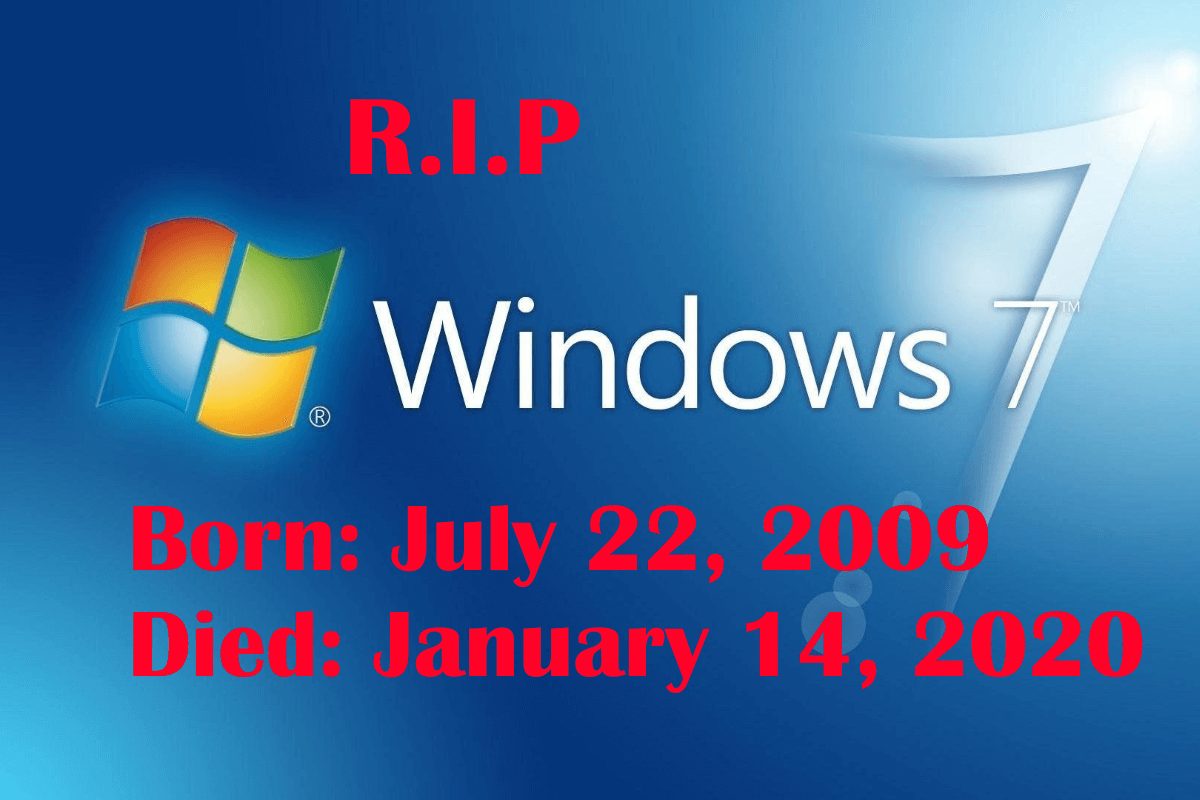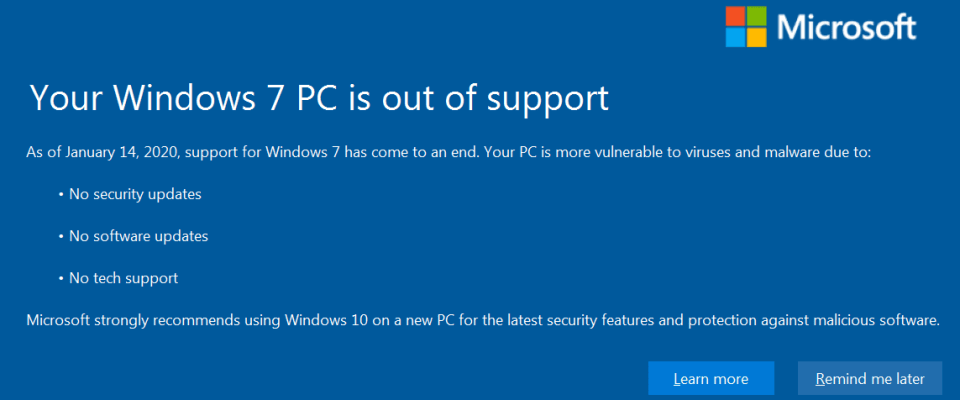If you are worried about still running Windows 7 after support has ended, you are in good company. In the first week in January 2020, more than 200 million computers around the world (that’s about 26%) were still running Windows 7, many of whom are undoubtedly still running it now that Windows 7 reached it’s official end-of-support on January 14. That means that Microsoft no longer releases updates to the operating system and doesn’t patch security vulnerabilities that are discovered from this point forward.
This does not mean that all Windows 7 computers will suddenly stop working or get infected, but it does mean that the operating system will become more insecure as more time passes. Eventually you will have a hard time using popular software such as Google’s Chrome or Mozilla Firefox because Windows 7 will no longer be supported. There are still some users of Windows Vista out there who have been struggling with this for a few years now since support for Windows Vista ended on April 11, 2017, and somehow Windows XP is still running on more than 1% of the computers out there. Since Windows 10 is Microsoft’s flagship operating system, it makes sense for them to re-allocate development resources toward making sure that OS runs smoothly and gets the majority of its attention since they cannot provide free support for old and obsolete software indefinitely. Ten years is a lot of time for an operating system to be around; I think it’s ok to let it die now with dignity. Windows 8 support has already ended, and Windows 8.1, will continue to receive official support until January 10, 2023, in case you’re still using that horrendous mistake of an operating system.

What should you do now that support for WIndows 7 has ended?
Well the first thing you should do is remain calm and not be afraid to use your computer. Make sure your backups are up-to-date with any computer, because as long as you’re safe from a data-loss disaster, computers can generally be repaired or replaced when they fail or succumb to malware. If your computer is running Windows 7, then there is a good chance that it is at least 6 years old or more, and if that’s the case, I hate to be the one to break it to you– but your computer is old and will need to be replaced at some point before too long anyway.
Don’t rush to spend a bunch of money to upgrade this one because you will probably be buying a new computer in a year or two and the new computer will already have WIndows 10 on it. If you bought your computer new just a year or two ago and specifically asked for Windows 7 to be installed because you were holding off on learning a new operating system like Windows 10, then you have held it off as long as you can but now you really should upgrade. Your computer is much more likely to handle the upgrade to Windows 10 without any major compatibility problems (unlike those folks with the 8-year-old computers) so you should probably just upgrade your computer to keep it secure and up-to-date.
If you are using a computer running Windows 7 with Microsoft Security Essentials, the popular and free antivirus software for Windows 7, that software will continue to receive definition updates so, at least for now, you don’t have to worry about your antivirus software becoming obsolete. Please contact us if you have questions or comments about your Windows 7 computer, or if you would like some help planning an upgrade path that will bring you the least amount of heartache.

